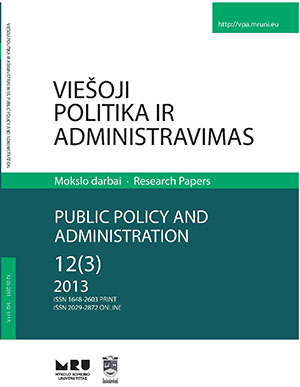Biudžetinio proceso tobulinimas Kazachstano Respublikoje
Topical Issues of the Budgeting Process Improvement in the Public Administration of the Republic of Kazakhstan
Author(s): Margarita KadyrovaSubject(s): Politics / Political Sciences
Published by: Mykolas Romeris University
Keywords: Вudgetary process; Budget planning; efficiency of budgetary expenditures; budgeting for results; Public finance administration
Summary/Abstract: On the 1st of January 2009 Kazakhstan introduced a new Budget Code, which includes the foundations of result oriented budgeting, covering all stages of the budgeting process. If the old Budget Code according to the "budgeting" concept involved planning, review, approval, implementation, verification, corrections, financial control, the new one contains procedures for fiscal accounting and reporting, budget monitoring and evaluation of the results. The release of the Budget Code can be treated as one more step forward in Kazakhstan development process. Independent government aimed to achieve transparent, efficient and stable budget, meeting the needs of the population and improving the quality of public services and functions as much as possible. Today, the main challenge of the budgeting process in the Republic of Kazakhstan is to develop techniques for effective monitoring and evaluation. Effective usage of budget funds can be achieved not only by fiscal measures, but also by improving logistics of budgeting process. One of the mechanisms that allow the government to carry out economic and social policies is a budgeting system. Through it financial resources are mobilized, then redistributed and used to solve economic and social problems. This process ensures that the government performs its functions properly and achieves its objectives. In order to reveal the basic trends of the current stage of Kazakhstan development is it purposeful to raise three main issues, which are the most relevant when considering the management of public finances in the Republic of Kazakhstan: 1. Fiscal discipline. Is the total amount of revenues, expenses, surplus or deficit and public debt amenable to current and anticipated economic conditions, government’s ability to collect taxes and service needs of public institutions? 2. Distribution efficiency. Did the government choose appropriate priority to spend for territorial development, program objectives, budget commitments and approved programs? 3. Management efficiency. Is the government able to manage the budget institutions and at the same time ensure quality of public services? New system of the government planning allows budget formation based on the goals and objectives of state policy and allocation of the monetary resources between administrators of budget programs. The article is devoted to expose topical issues of the budgeting process improvement in the Republic of Kazakhstan.
Journal: Viešoji politika ir administravimas
- Issue Year: 12/2013
- Issue No: 3
- Page Range: 375-388
- Page Count: 15
- Language: Russian

